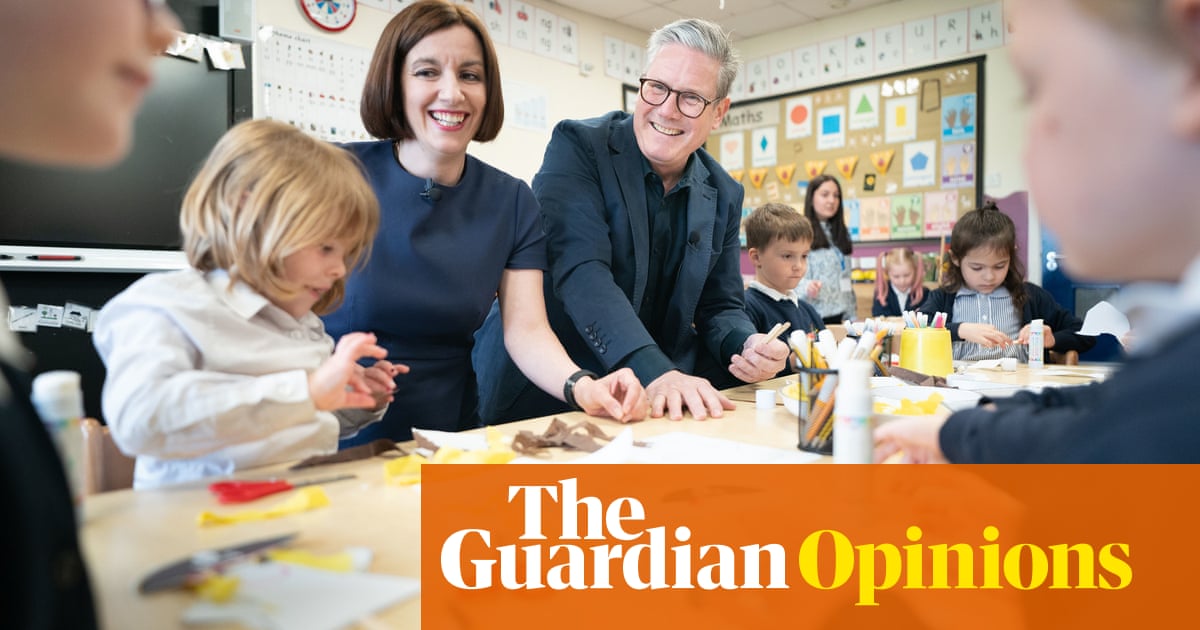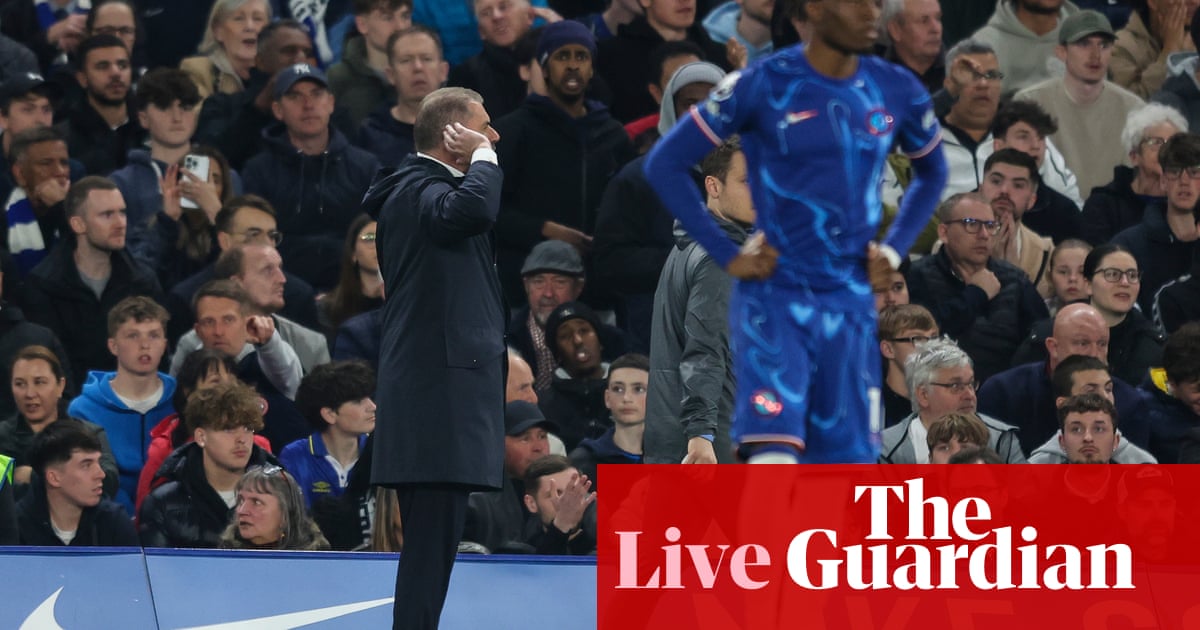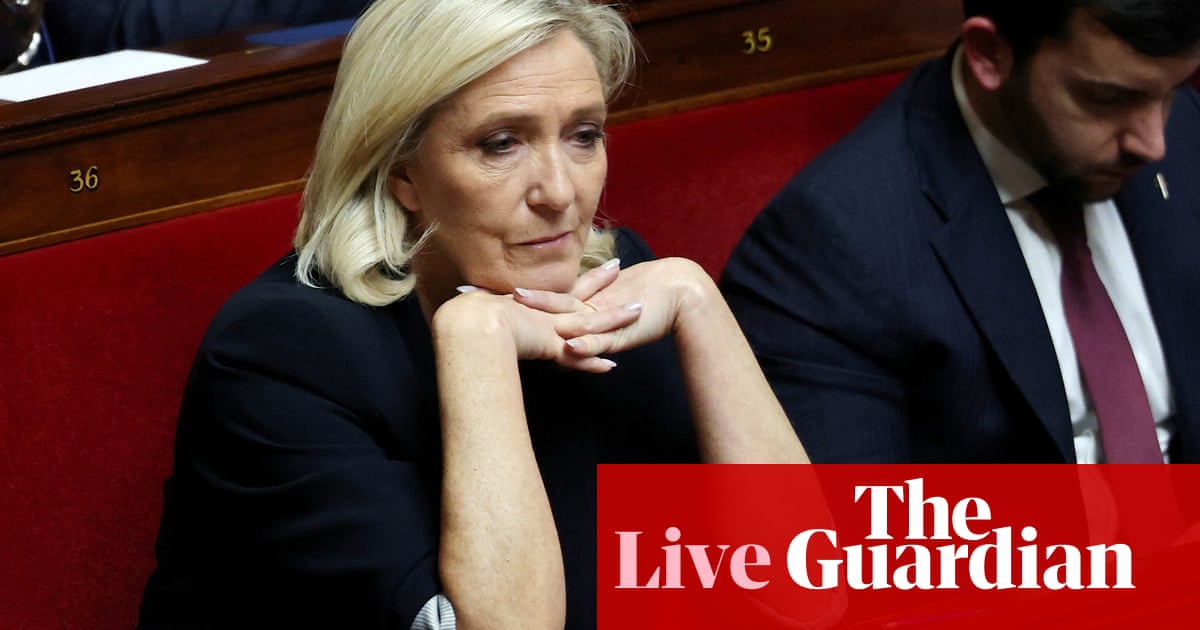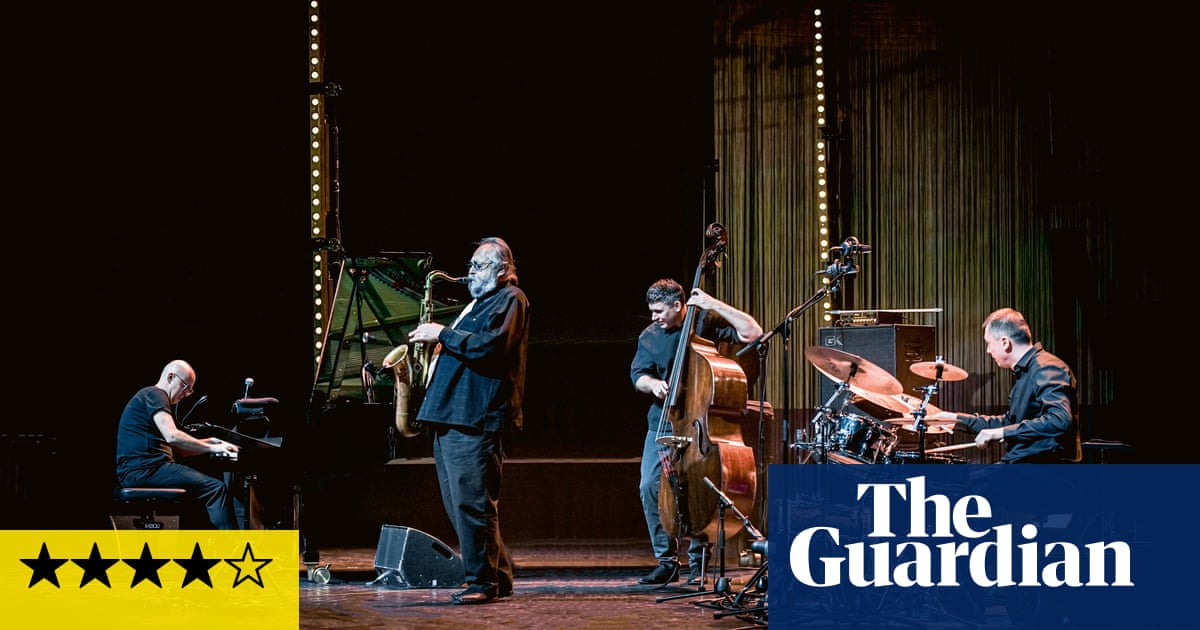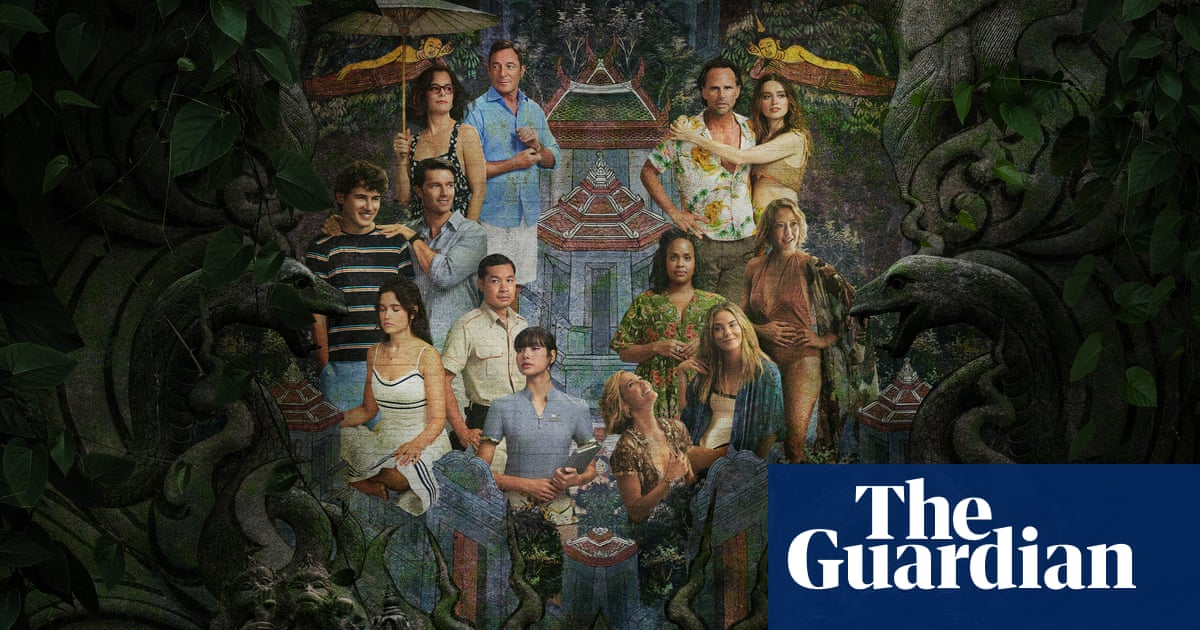Erica Jeal: ‘The performance reminded me why the last movement is called the Ode to Joy’
Late-summer nights at the BBC Proms this year found two orchestras showing me new things about great works that I thought I knew pretty much inside out. The Aurora Orchestra’s recent Proms have been reliably fascinating and musically rewarding, so I had high hopes for their dramatised exploration of Beethoven’s Ninth – but I still wasn’t expecting to be so touched by their portrait of the composer, presenting the genius of his inspiration alongside the mundanities and frustrations of his daily life. The performance itself, bolstered by the voices of the National Youth Choir, reminded me why the last movement is called the Ode to Joy. Then more joy a fortnight later, when Klaus Mäkelä conducted the Orchestre de Paris in an evening of Debussy, Stravinsky and Berlioz, with an electrifying performance of Petrushka at its centre. Something just clicked: Mäkelä had us all hanging on every note within seconds, and the orchestra played like a team of all-stars.
Rian Evans: ‘Simply unforgettable’
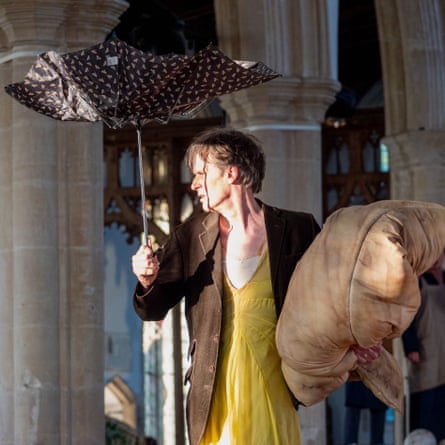
No Fit State is the punning title of the circus company that so memorably collaborated with Welsh National Opera for their spectacular production of Britten’s Death in Venice. Ironic then that WNO – vital funding diminished – may no longer be in any fit state to sustain the kind of uncompromising work for which it has always been admired. Given the anger and chagrin still surrounding the Arts Councils’ decisions, it’s now positively nostalgic to look back on that night and, too, on Puccini’s Il Trittico, with the glorious Natalya Romaniw singing the roles of Giorgietta and, most affectingly, Suor Angelica.
Similarly unforgettable was the pain and anguish of Ian Bostridge’s singing Schubert’s Winterreise with pianist Julius Drake at Bath’s Ustinov Studio theatre and then the role of the Madwoman in Britten’s Curlew River at the Aldeburgh festival. Both directed by Deborah Warner, these were heart-wrenching experiences. At the other end of the spectrum, remembering violinist Vilde Frang’s fabulously expressive playing with Jonathan Cohen’s Arcangelo and soprano Julia Doyle at the Tetbury festival is to be transported again to truly angelic heights.
Andrew Clements: ‘A performance of effortless musical mastery’
At the risk of recency bias, it’s the near-perfect recital earlier this month by Rinaldo Alessandrini’s Concerto Italiano, devoted to the fourth book of Monteverdi’s madrigals, that lodges at the forefront of this year’s musical memories. These were performances of utterly unforced and effortlessly musical mastery, from a group and conductor who have lived with these jewel-like settings for 40 years.
At the orchestral end of the scale, nothing stood out more than the Hallé’s concert under Thomas Adès, featuring Adès’s own Tevot, a score that seems more and more one of his finest achievements, alongside a late Tippett masterpiece, his Triple Concerto. But it was the superlative orchestral playing that made it so special, evidence that as Mark Elder stepped down as the Hallé’s music director, he was leaving an orchestra as fine as any in the UK at present. And, in what was otherwise a distinctly unmemorable year for new music at the BBC Proms, one UK premiere stood out – Francisco Coll’s Cello Concerto, composed for Sol Gabetta, is a glittering achievement, full of iridescent detail crammed into four concise movements.
Clive Paget: ‘Penetrating and multifaceted Vaughan Williams’

There’s nothing so rewarding as a case of old wine in new bottles. That was certainly true of Simon Rattle’s fantasy-filled account of Bruckner’s Fourth Symphony with the Bavarian Radio Symphony Orchestra at this year’s BBC Proms. His fresh, light-on-its-feet interpretation was imbued with a grace and lucidity rarely associated with this composer. Equally penetrating was Antonio Pappano and the London Symphony Orchestra’s multifaceted take on Vaughan Williams’ Fifth Symphony, a work that proffered solace and balm to a battle-weary Britain. By searching out the grit in the oyster, Pappano transcended its pastoral credentials, tapping into both the pity of war and the poetry in the pity, as Wilfred Owen once said.
When it came to musical dramatics, two events stood out. Grange Park Opera offered a textbook case of less equalling more in David Alden’s clear-sighted and heart-aching staging of Janáček’s Katya Kabanova. Finally, a rare outing for Sibelius’s choral symphony Kullervo found the Philharmonia and Santtu-Matias Rouvali on blazing form in an edge-of-the-seat, semi-staged performance. In their hands, the composer’s biopic behemoth was transformed into a neglected masterpiece.
Sarah Noble: ‘The standing ovation was vociferous and utterly deserved’
A riotous opening to this year’s Edinburgh international festival, Osvaldo Golijov’s La Pasión según San Marcos brought as much noise, colour, and sheer ferocious energy to the Usher Hall as anything happening concurrently out on the Royal Mile. Singers and musicians of all ages and varied cultural traditions – not to mention an astonishingly elastic capoeirista – radiated an energy which quickly infiltrated the audience as well. No reverent silence greeted the conclusion of this biblical Passion; the standing ovation was instant, vociferous and utterly deserved.
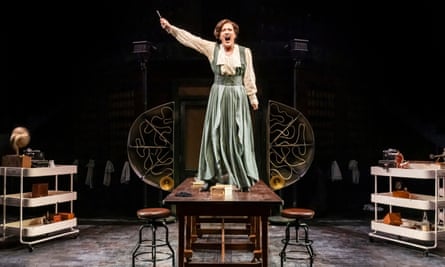
As irresistible in its own way was Opera North’s My Fair Lady at Leeds Playhouse, a joyous, thoughtful production cast almost entirely, and with thoroughly idiomatic results, from the company’s formidable chorus. I confess Katie Bird’s pitch-perfect Eliza Doolittle had me in tears of joy within minutes; and James Brining’s staging of the ending – aching in its poignant ambiguity – is still giving me goosebumps six months later.
Flora Willson: ‘The blistering rendition of Monti’s Csárdás had me grinning until my face ached’
It’s funny what is left, long after the notes of a year’s concertgoing have faded. I’ve thought back repeatedly to the sound quality of the Belcea Quartet with violist Tabea Zimmermann and cellist Jean-Guihen Queyras as they played Brahms’ two String Sextets at Wigmore Hall: by turns forthright and featherweight, always lucid – but constantly courting danger as they explored the limits of dynamics and tone. The crackle of energy surging between two nested piano stools as Yuja Wang and Víkingur Ólafsson hurtled through John Adams’ Hallelujah Junction at Royal Festival Hall remains similarly live in my mind’s ear. In a duo recital where virtuosity came as standard, it stood out as irrepressibly thrilling: just thinking about their hell-for-leather tempo makes my pulse race again. Alongside these classical big names, a very different concert also left its mark: a performance by Kirkbymoorside Town Brass Band during the Ryedale festival. While professionally polished, it was unmistakeably a community affair. The blistering rendition of Monti’s Czárdás with solo euphonium had me grinning until my face ached. Such delight in music-making is brilliantly, memorably contagious.
Tim Ashley: ‘The most thrilling thing I’ve heard at Covent Garden in ages’
My highlights of 2024 were all operatic, beginning in February at the Barbican with Il Pomo d’Oro’s double bill of Carissimi’s Jephte and Purcell’s Dido and Aeneas, ravishingly conducted by Maxim Emelyanichev. Joyce DiDonato was magnificent and heartbreaking as Dido, but it is Carissimi’s little-known sacred tragedy, sung with flawless intensity, that has haunted me all year. At the Royal Opera, meanwhile, Antonio Pappano closed his tenure as music director with Giordano’s Andrea Chénier, the most thrilling thing I’ve heard at Covent Garden in ages: Jonas Kaufmann and Sondra Radvanovsky were outstanding as the rebellious lovers destroyed in the convulsions of revolution. Pride of place, though, goes to Annilese Miskimmon’s English National Opera staging of Suor Angelica, relocating Puccini’s tragedy of faith and human cruelty from a 17th-century Florentine convent to one of Ireland’s Magdalene laundries, a restrained yet devastating indictment of institutional abuse past and present. Sinéad Campbell-Wallace as Angelica, and Christine Rice as her embittered, moralistic Aunt both gave performances of a lifetime.
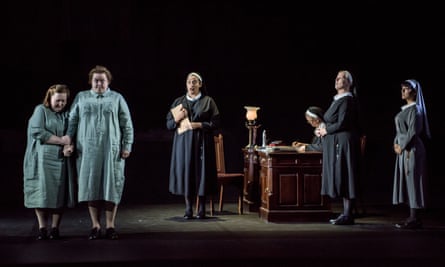
Martin Kettle: ‘Barenboim’s presence alone was heroic’
Two orchestral concerts were exceptional. The first was Daniel Barenboim’s return to the Proms with the West-Eastern Divan Orchestra. Barenboim’s presence alone was heroic, defying his own physical decline and the horrors of the Israel-Gaza war alike. The old school grandeur of his Schubert 9th symphony, in total disregard of modern performance practice, was magnificent.
The other was the 97-year-old Herbert Blomstedt’s Mahler 9th symphony in the Festival Hall. Mortality’s shadow was again faced down by music making, as the unobtrusive rigour of Blomstedt’s approach built to Olympian heights and the Philharmonia Orchestra responded with their all. The hushed viola figures in the closing bars had an eloquence beyond words.
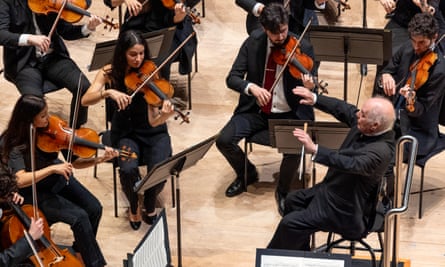
A medal, too, for live music in special venues, in this case the Marble Hall in Hertfordshire’s Jacobean Hatfield House, home to what has become, under the cellist Guy Johnson’s direction, an annual chamber music festival of special quality and intimacy. Could anything be more extraordinary than the juxtaposition of Claire Booth’s performance of Schoenberg’s Pierrot Lunaire in front of one of Hatfield’s fabulous portraits of Elizabeth I? Even so, Mark Padmore’s and Julius Drake’s searingly exploratory performance of Schubert’s Winterreise in London’s Temple Church this month ran it close.

.png) 3 months ago
32
3 months ago
32








